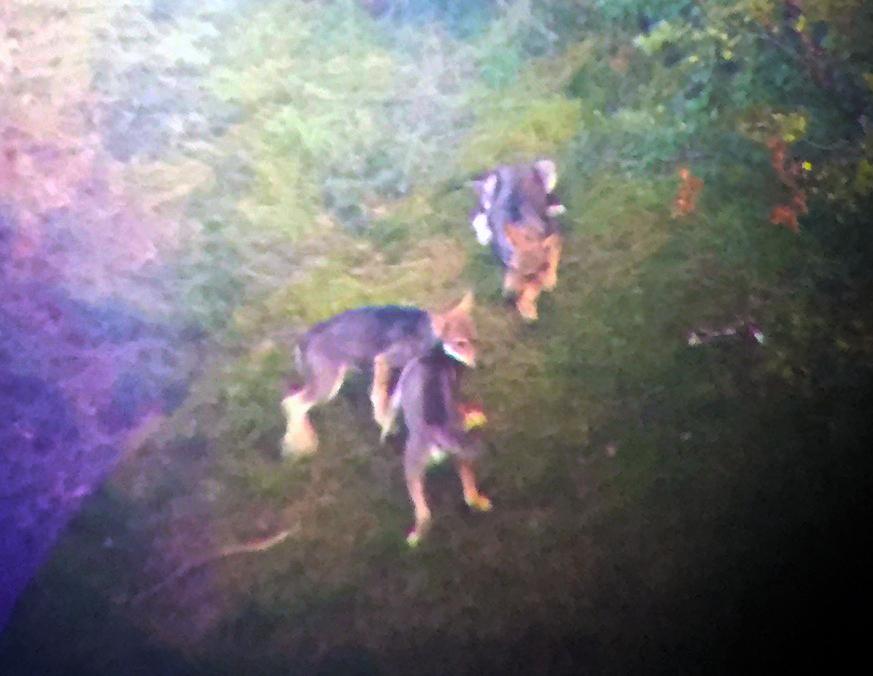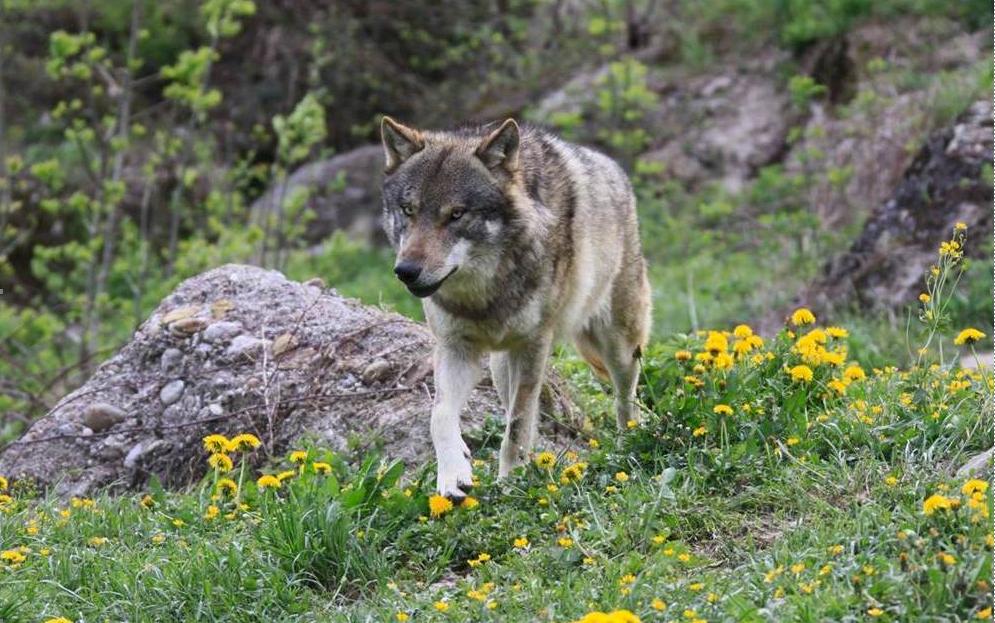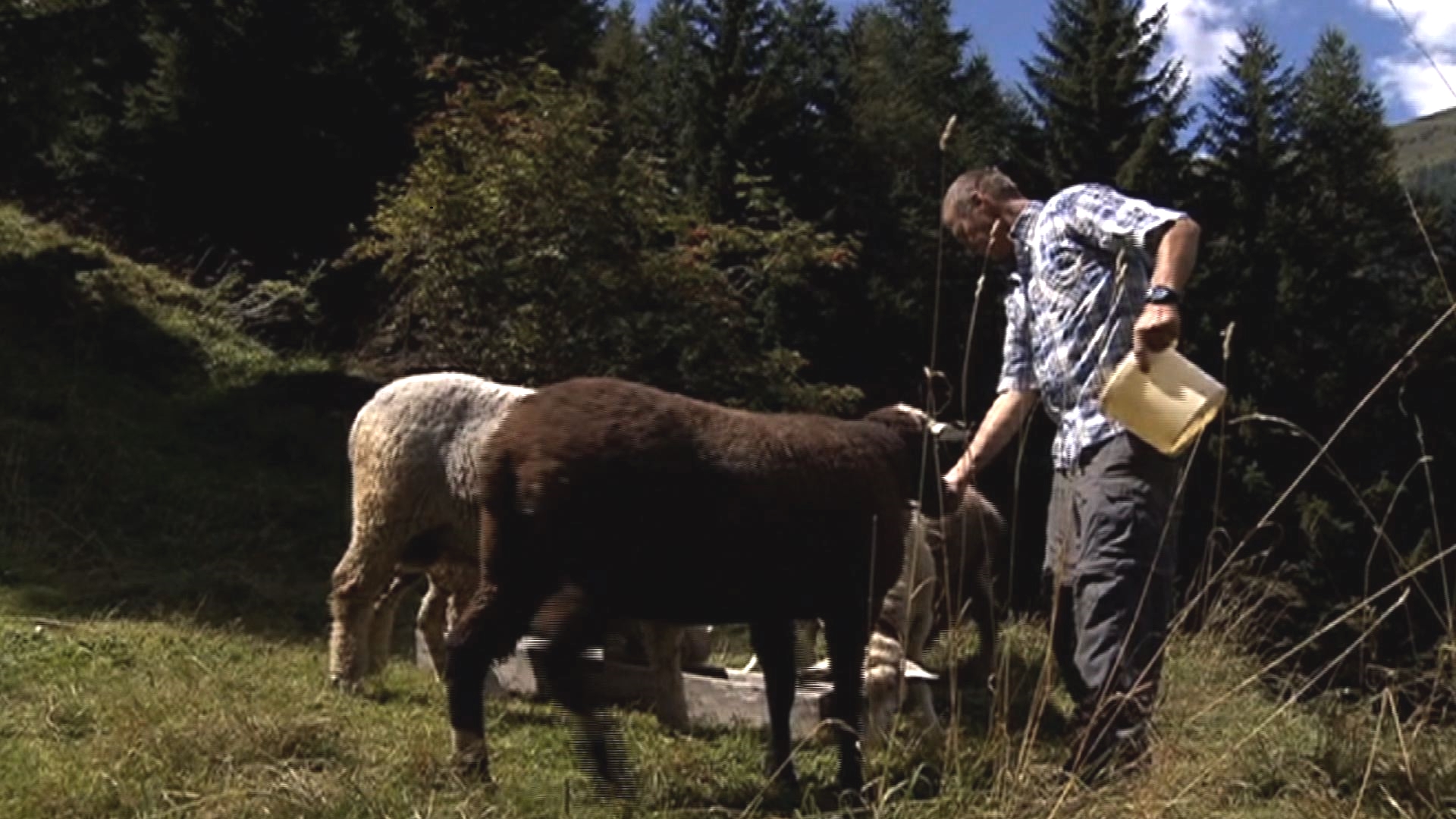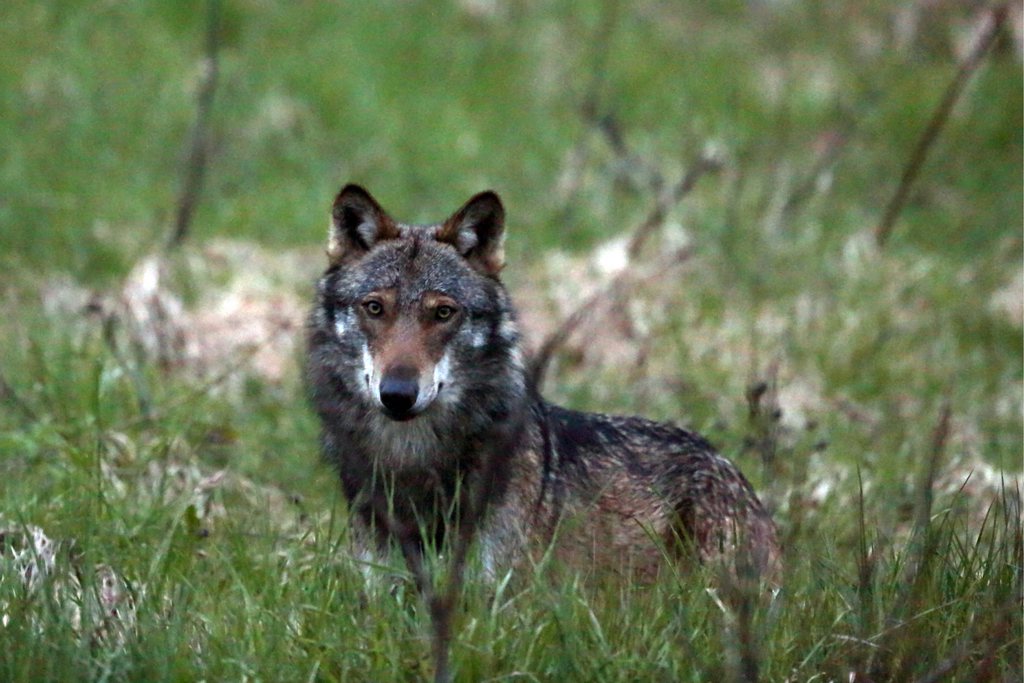New wolves seen in Switzerland

A second pack of wolves has been spotted in Switzerland. They were seen in the southern canton of Ticino. A group of the animals were already known to be in the mountains between cantons Graubünden and St Gallen in the south-east of the country.
Canton Ticino confirmed a family of wolves – one adult and three cubs – had been seen and photographed. Wolves were first seen in Ticino in recent times 14 years ago and have been spotted since on a few occasions. This latest discovery brings the total number of wolves in Switzerland to 18.
WWF Switzerland said in a statement it was pleased about the sighting. “It shows that the wolf can successfully repopulate Switzerland.”
The Swiss Wolf Group, an organisation that campaigns for their protection, said in a press release that there had been signs of the animals in Ticino for a while, and they were not surprised that their existence had now been proven. They urged farmers to protect herds of sheep and goats with sheepdogs to scare off the wolves, even though there has not yet been any sign of the wolves coming into contact with these animals.
Although wolves are a protected rare species, their presence causes controversy. Farmers complain the animals should be hunted as soon as possible as the predators kill their livestock, mainly targeting sheep.
Authorisation within a specific canton to shoot wolves is given only if 25 sheep are killed by the animal within a month. A timeframe of 60 days is given for the animal to be killed. If the wolf has not been tracked down during this period, the authorisation expires. This was recently the case in canton Uri. In canton Valais in the south-west of the country, hunters currently have permission to kill a wolf, although the animal has so far evaded those on the hunt.

In compliance with the JTI standards
More: SWI swissinfo.ch certified by the Journalism Trust Initiative














You can find an overview of ongoing debates with our journalists here . Please join us!
If you want to start a conversation about a topic raised in this article or want to report factual errors, email us at english@swissinfo.ch.